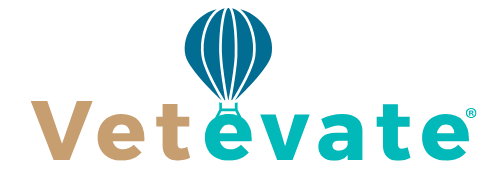In the digital age, transparency and accessibility are essential for any online platform, especially in a specialized field like veterinary recruitment. A veterinary job board serves as more than just a listing site—it becomes a career compass for job seekers and a talent pipeline for employers. In this role, the ability to easily contact the platform becomes a vital indicator of credibility and professionalism. When job seekers and employers encounter a barrier to communication, whether through lack of clear contact information or unresponsive support channels, trust erodes quickly.
Providing seamless avenues for contact reassures users that there is a team behind the technology—real people who care about the user experience and are available to offer support, guidance, and solutions. For job seekers, particularly those navigating emotional job transitions or entry into the workforce, having the option to ask questions and receive human responses adds a sense of stability. Similarly, employers posting high-stakes job openings want to feel confident that their listings are managed professionally and that their investment is protected.
Accessibility is not only about convenience—it’s about accountability. A job board that welcomes inquiries is one that stands behind its platform and values its community. This approach signals a commitment to service quality, which enhances reputation and encourages long-term loyalty among both job seekers and veterinary employers.
Enhancing the User Experience for Job Seekers
For veterinary job seekers, especially those new to the field or exploring unfamiliar roles, the job board interface can sometimes be overwhelming. Questions may arise regarding how to apply, whether a certain credential is required, how to upload documents correctly, or how to follow up on applications. When contact options are clear and responsive, the platform instantly becomes more user-friendly. It fosters a sense of support during what can be a stressful or confusing time.
Veterinary professionals often work long hours, deal with high emotional demands, and manage complex cases. Job transitions can be daunting, whether due to burnout, relocation, or career growth. If a veterinary technician or recent graduate is trying to navigate listings, understand the hiring process, or get clarification on a potential employer, a direct contact feature offers reassurance. Even automated responses or scheduled callbacks can alleviate uncertainty and help users move forward confidently.
Additionally, some job seekers may have technical difficulties using the platform—uploading resumes, accessing listings, or navigating mobile interfaces. Providing immediate assistance via live chat, email, or phone helps prevent frustration and loss of engagement. A single unanswered question can result in a job seeker abandoning the platform altogether, possibly missing an ideal opportunity. By prioritizing communication, the job board builds empathy into the digital experience, reflecting the compassionate nature of the veterinary field itself.
Supporting Employers with Efficient Communication
On the employer side, responsiveness is equally crucial. Veterinary practices, animal hospitals, nonprofit rescue organizations, and academic institutions rely on job boards to help them fill critical roles, often under time-sensitive conditions. A vacancy in a veterinary clinic doesn’t just affect operations—it impacts patient care, client satisfaction, and staff morale. Therefore, employers expect not only visibility for their postings but also assistance and guidance when needed.
Easy contact with the job board’s support team allows employers to resolve listing errors, adjust posting durations, or gain insights into performance analytics. Perhaps they need help writing a more compelling job description, or they’re uncertain about pricing for premium placement. Maybe they’ve posted multiple positions and need a consolidated invoice. Regardless of the nature of the inquiry, fast and knowledgeable responses help ensure smooth recruitment operations.
Employers also appreciate proactive communication. When the job board provides follow-up on listing results, recommends optimization tips, or offers access to talent pools, it demonstrates an investment in the employer’s success. This encourages repeat business and positions the platform not just as a job board but as a recruitment partner.
Moreover, veterinary employers—especially small or independently owned clinics—may lack dedicated HR personnel. They need extra guidance to understand applicant tracking tools, compliance standards, and best practices for engaging with candidates. Making it easy to ask questions and receive support lowers the barrier for participation and helps smaller organizations compete effectively in the veterinary talent market.
Creating a Community-Centric Platform
Veterinary medicine is a tight-knit, emotionally driven profession. Practitioners often face compassion fatigue, long hours, and emotionally charged client relationships. In such a community, having access to human connection—even through a digital platform—can make a profound difference. By making communication easy and welcoming, a veterinary job board becomes more than a service provider; it becomes a supportive community hub.
A contact-friendly job board encourages dialogue, feedback, and collaborative growth. It can be the starting point for valuable relationships, such as between a veterinary student and a future mentor, or between an employer and a candidate seeking long-term alignment. Offering multiple ways for users to connect with the platform—whether to ask technical questions, provide testimonials, report issues, or offer suggestions—ensures that the board evolves in response to real-world needs.
This open channel also allows the platform to stay current and relevant. User feedback is one of the most valuable assets in platform development. If users can’t reach out easily, the job board misses opportunities to improve its offerings, anticipate market shifts, and enhance the overall experience for future users.
Furthermore, easy communication opens the door to broader community initiatives. A job board might offer webinars, virtual job fairs, resume workshops, or continuing education updates—but only if users feel encouraged to reach out and engage. When the job board is seen as approachable and available, users are more likely to participate in these value-added services and share the platform within their professional networks.
In conclusion, making it easy for job seekers and employers to contact a veterinary job board isn’t just a matter of convenience—it’s a core function that supports trust, performance, and long-term success. In an industry where compassion and responsiveness are cornerstones, the digital experience should reflect those same values. By embracing open communication, veterinary job boards can ensure they meet the evolving needs of their users while building a reputation as accessible, reliable, and community-oriented platform.




